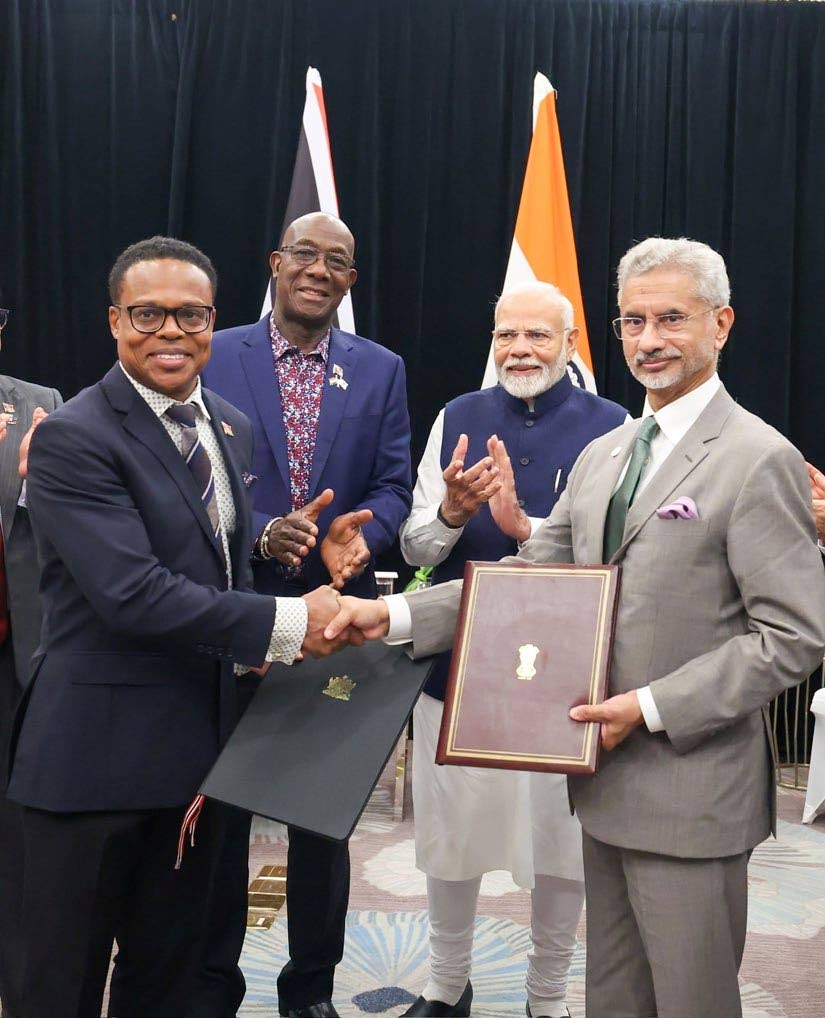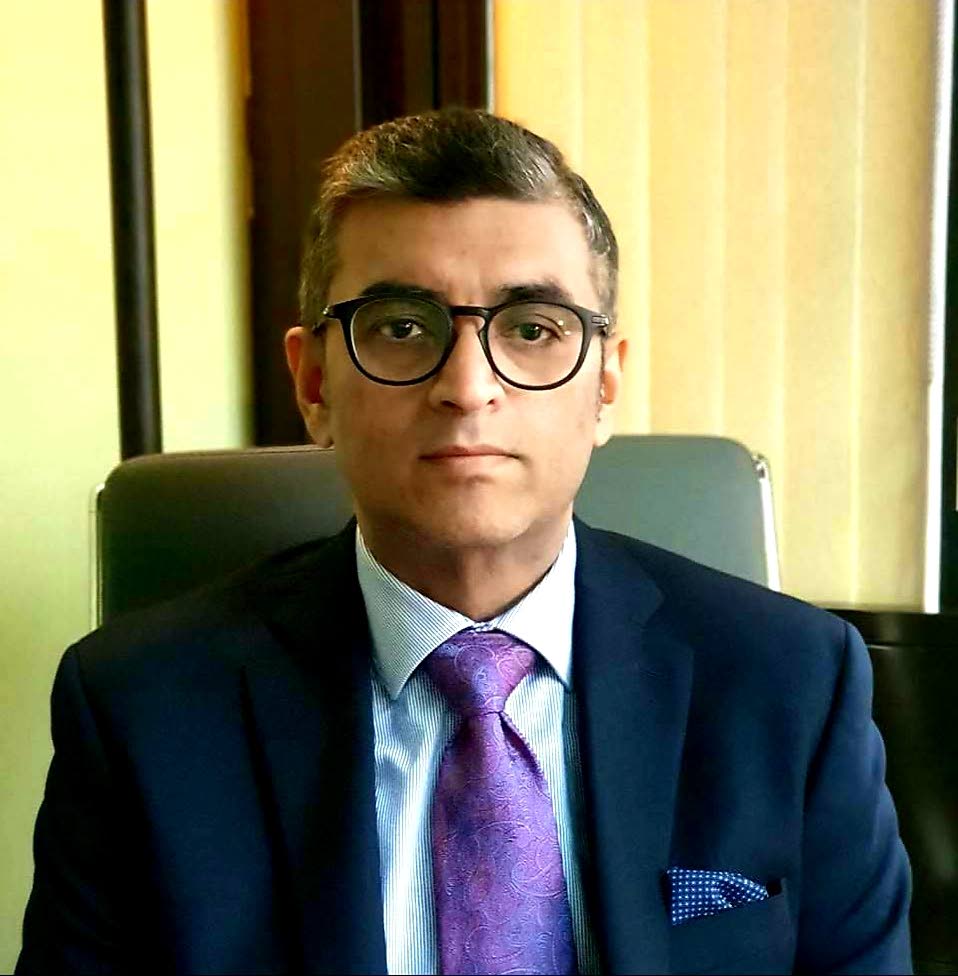Action needed to save rice industry
Written by Newsday on August 20, 2024

RUSHTON PARAY
AS THE shadow minister for trade and industry, I am compelled to bring attention to the disturbing direction in which the Government is steering the rice industry.
The PNM Government has presided over the systematic collapse of several vital industries in this nation, from the sugarcane sector to the once-booming oil and gas industry. Now it seems poised to lead our rice industry down the same disastrous path.
The Government’s latest move – to sell our local rice mill to Haryana State Cooperative Supply and Marketing Federation Ltd (HAFED), an Indian agricultural conglomerate – marks another step towards the complete erosion of a once-thriving local sector if not managed properly. This deal, allegedly meant to revive rice production, comes after years of mismanagement, neglect and outright abandonment by the State.
Let’s not mince words: the rice industry in TT is on the brink of total collapse. In 1992 we produced 21,200 metric tonnes of rice, yet by 2018 that number had plummeted to a mere 585 metric tonnes. Today, only 15 rice farmers remain. This is an industry teetering on the edge, surviving only through sheer will in the face of a government that has repeatedly turned its back on them.
Farmers have faced insurmountable challenges: delayed payments from National Flour Mills (NFM), rising input costs, and a complete absence of meaningful support. These realities have driven many farmers to abandon the trade altogether.
Eniat Hosein, for instance, a long-time rice farmer, was bankrupted when NFM failed to pay him on time, causing him to default on a $1.6 million loan from the Agricultural Development Bank (ADB). His story is not unique, it’s a reality faced by far too many in the industry.
Rather than focus on revitalising our local rice production, this administration has instead chosen the easy path of heavy importation, creating a dangerous dependence on foreign rice from Guyana, Suriname and India. In 2022 alone, we imported 37,000 tonnes of rice at a staggering cost of $177.1 million.
This is not just unsustainable – it is a complete abdication of responsibility to our farmers and our country’s food security.
Now Prime Minister Rowley has announced that HAFED is considering establishing a rice mill in the country, potentially in partnership with state-owned NFM. While this move is being presented as a potential lifeline, farmers like Fazal Akaloo remain sceptical – and with good reason.
The Government’s sporadic and unco-ordinated attempts to “assist” the industry, such as providing seeds or investing in a couple of harvesters, are laughably inadequate when compared to the decades of neglect that have brought us to this point.
This Government’s approach to rice farming is not only short-sighted but perilous. The reliance on foreign investors such as HAFED may result in temporary fixes, but it will not solve the root issues of a collapsing industry. If we are not careful, HAFED’s interests could easily overshadow those of our local farmers, further undermining our ability to produce rice domestically.
Let me be clear, this country does not need more foreign intervention at the expense of local development. What we need is a government that prioritises TT’s farmers and commits to meaningful, long-term investment in our agricultural sectors. The rice industry, like many others before it, has suffered tremendously under the PNM’s watch, and without urgent intervention it will follow the same fate as sugar and oil.
As shadow minister for trade and industry, I urge the Government to take immediate action on the following recommendations to prevent the total collapse of the rice industry:
Financial reform for farmers
The Government must restructure the financial framework for farmers, ensuring timely payments from NFM. We cannot allow another farmer to be bankrupted due to government incompetence. Subsidies or tax relief should be introduced to alleviate the burden of high input costs such as fertilisers.
Technological upgrade
If HAFED is to establish a rice mill, it must include commitments to upgrade local milling facilities with state-of-the-art technology. We must move beyond outdated practices to create a rice industry that is competitive on both the local and international stages.
Prioritise local production
Reduce reliance on imports and focus on building a self-sufficient domestic rice market. Price guarantees for local rice, coupled with national branding campaigns to promote its consumption, will be essential steps toward revitalising the industry.
Long-term agricultural policy
A comprehensive and clear policy is urgently needed. This policy must include infrastructure investment, support for sustainable farming practices, and protection for local farmers against international market volatility. Establishing special zones for rice cultivation with modern irrigation and drainage systems would go a long way in ensuring consistent production.
Water management and
environmental practices
Improved water infrastructure is critical. The Government must ensure that rice farmers have access to reliable irrigation and support environmentally sustainable practices to ensure long-term industry viability.
Inclusion of farmers
in decision-making
The Government must ensure that local farmers are involved in any agreements with foreign investors like HAFED. Transparency and collaboration are key to ensuring that the interests of TT’s farmers are not sidelined in favour of foreign profit.
The collapse of the rice industry in TT is a direct result of years of neglect, financial mismanagement and an over-reliance on imports. Any future investment must prioritise the revitalisation of local farming, ensuring that new mills serve our farmers, not foreign interests.
If this Government continues to shirk its responsibilities, we will lose not only an industry, but a vital part of our nation’s agricultural heritage. The time for action is now. The rice industry, and the farmers who sustain it, cannot afford to wait any longer.
Rushton Paray is the Mayaro MP and the opposition shadow minister for trade and industry
The post Action needed to save rice industry appeared first on Trinidad and Tobago Newsday.




